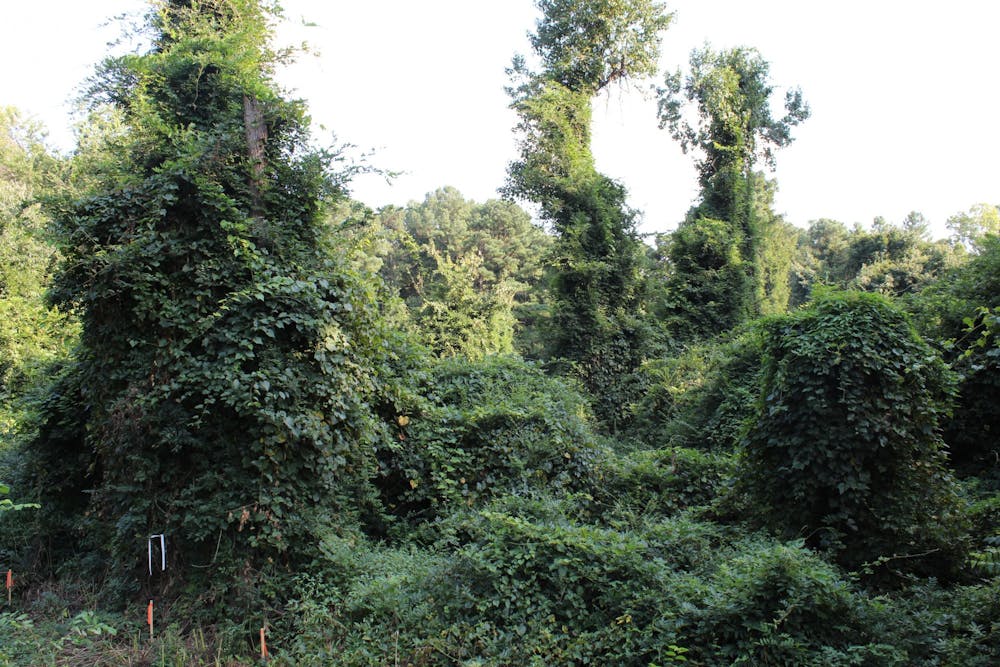Trees in the Orange County area are suffering from an invasive species, and volunteers are trying to mitigate the damage being done.
Volunteers Tim Logue and Liz Waters from the Hillsborough Tree Board and former member Frances Harris have been working to remove English ivy from trees in the Chapel Hill and Hillsborough areas. English ivy is one of several invasive species that diligent gardeners should eradicate or control, Logue said.
Aside from not being native to the United States, English ivy has a tendency to climb trees, killing the foliage and working its way into the tree bark. Ivy also adds weight to trees, making them more susceptible to storm damage. This can lead to a harboring of moisture, which promotes tree rot.
“Ivy doesn’t fruit when it’s on the ground, but once it starts climbing trees, it fruits and the birds will eat the fruit," Logue said. "Their droppings will replant it in wild areas, so then ivy can take over an entire forest or parts of the forest.”
The ivy is a big problem in Hillsborough, Stephanie Trueblood, the Town's public space and sustainability manager, said in an email. It covers many of the forests, wooded areas, public and private property.
English ivy can even be found on parts of campus students navigate daily.
“If you drive down East Franklin to South Estes, you see it on either side of the road, climbing trees,” Logue said.
Two sites that are overgrown with the ivy include the Hillsborough Town Hall and the Old Town Cemetery, Trueblood said in the email.
"Volunteer numbers differ from year to year, but right now, several Tree Board members and their friends and family are removing ivy regularly at the Hillsborough Town Hall and the Old Town Cemetery, two sites that are particularly bad," she said in an email.




